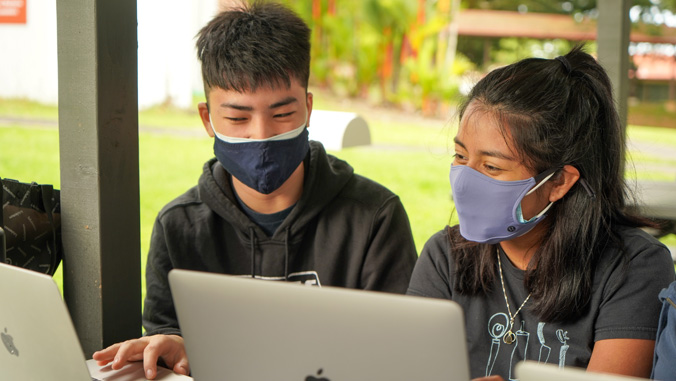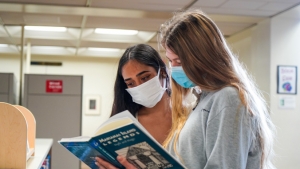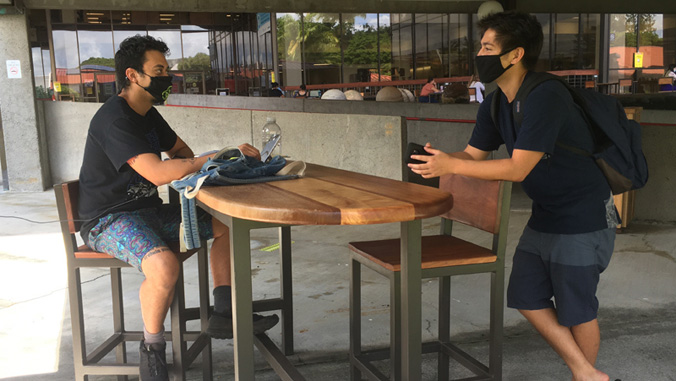
A $500,000 grant awarded to the University of Hawaiʻi at Hilo will fund a pilot program that will partner student peer mentors with faculty to grow and secure the pipeline to college for youth on Hawaiʻi Island.
Oak Foundation seeded the innovative tiered program being developed at the UH Hilo Center for Place-Based Socioemotional Development, also known as The Hilo Center. The grant was recently awarded to the Hawaiʻi Island campus program by the Oak Foundation Fund at the Hawaiʻi Community Foundation. Oak Foundation, which is based in Geneva, Switzerland, has invested in a number of other Hawaiʻi Island community programs, including the 13th year program at Hawaiʻi Community College’s Pālamanui Campus.
“Support for this new program demonstrates Oak Foundation’s commitment to the health and wellbeing of Hawaiʻi Island youth and a continued investment in higher education,” said UH Hilo Chancellor Bonnie D. Irwin. “We all benefit from strengthening the university’s connection to the community and from building the pipeline to college and helping students succeed.”
The tiered mentoring program is modeled after a number of successful student-led and partnership mentoring models. It also derives from previous research on student support conducted by Margary Martin, executive director of the Hilo Center and an associate professor in UH Hilo’s School of Education, who will lead the program.
Martin said the COVID-19 pandemic has isolated students from their peers and professors and noted that even though classes are starting to resume in person, many students are choosing to stay online, which may have a direct impact on their college experiences, mental health and success.
“That sense of belonging and relationships are two of the strongest predictors for persisting with college and graduation rates,” she said. “We’re trying to create this whole pipeline of students, families and local communities to create these supportive networks.”
Building blocks

According to Martin, one of the most important aspects of the new program is that it is led by students as opposed to faculty. It is designed to cultivate the leadership skills of both the mentors and the mentored. Research shows students tend to seek different kinds of advice from their peers rather than from their faculty mentors, often reaching out more to their peer mentors much more than faculty.
The UH Hilo pilot program will pair students with both peer and faculty member mentors throughout a two-year period. In addition, they will participate in workshops of interest and ‘ohana events and complete an annual community service project. Martin envisions participating students who were mentored eventually becoming mentors themselves to the program’s following cohort.
This spring, Martin will be recruiting student and faculty mentors and building a network. She plans to launch the program next fall with 10 faculty mentors, 10 student mentors and 50 student mentees, to build a “scaffolding” upon which the program can grow and expand.
Three student leaders have been chosen to co-construct the program and help recruit the student mentors for the paid positions. Leadership development training will begin this winter. The plan is to expand the program to high schools, where student mentors can help other students make a successful transition to college and create a strong network of support and pipeline for local students.


